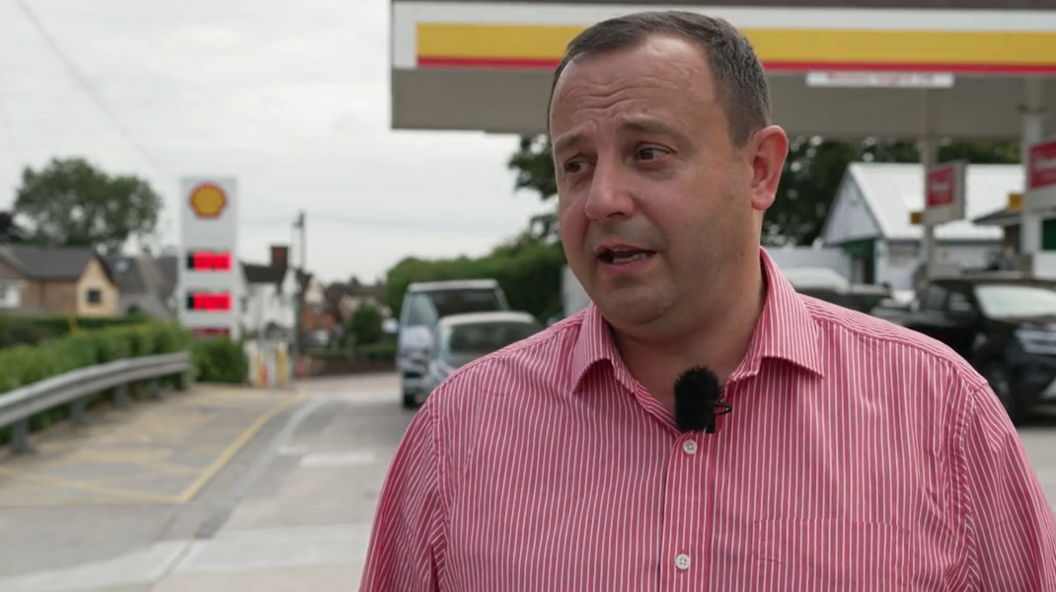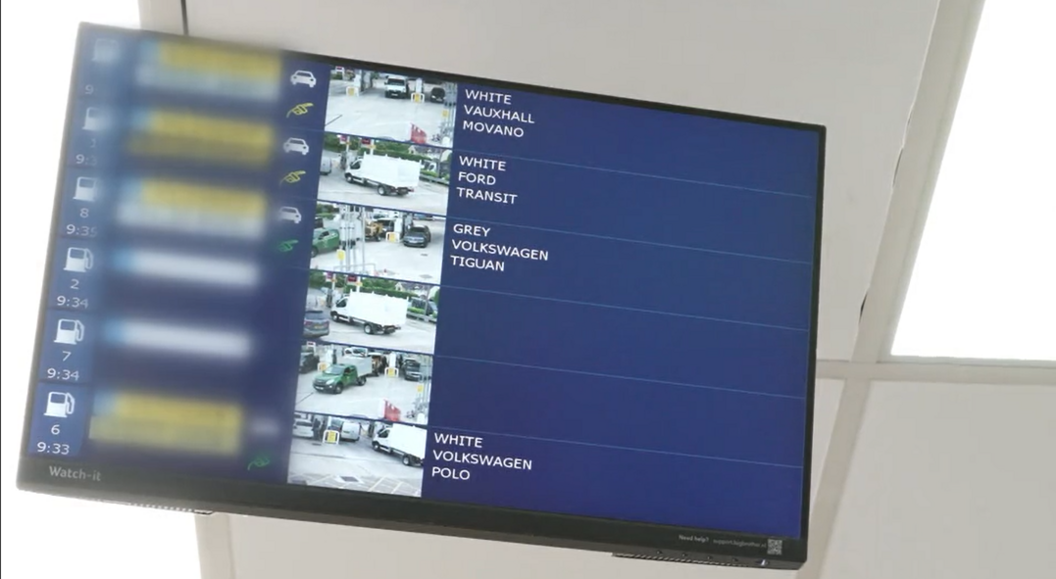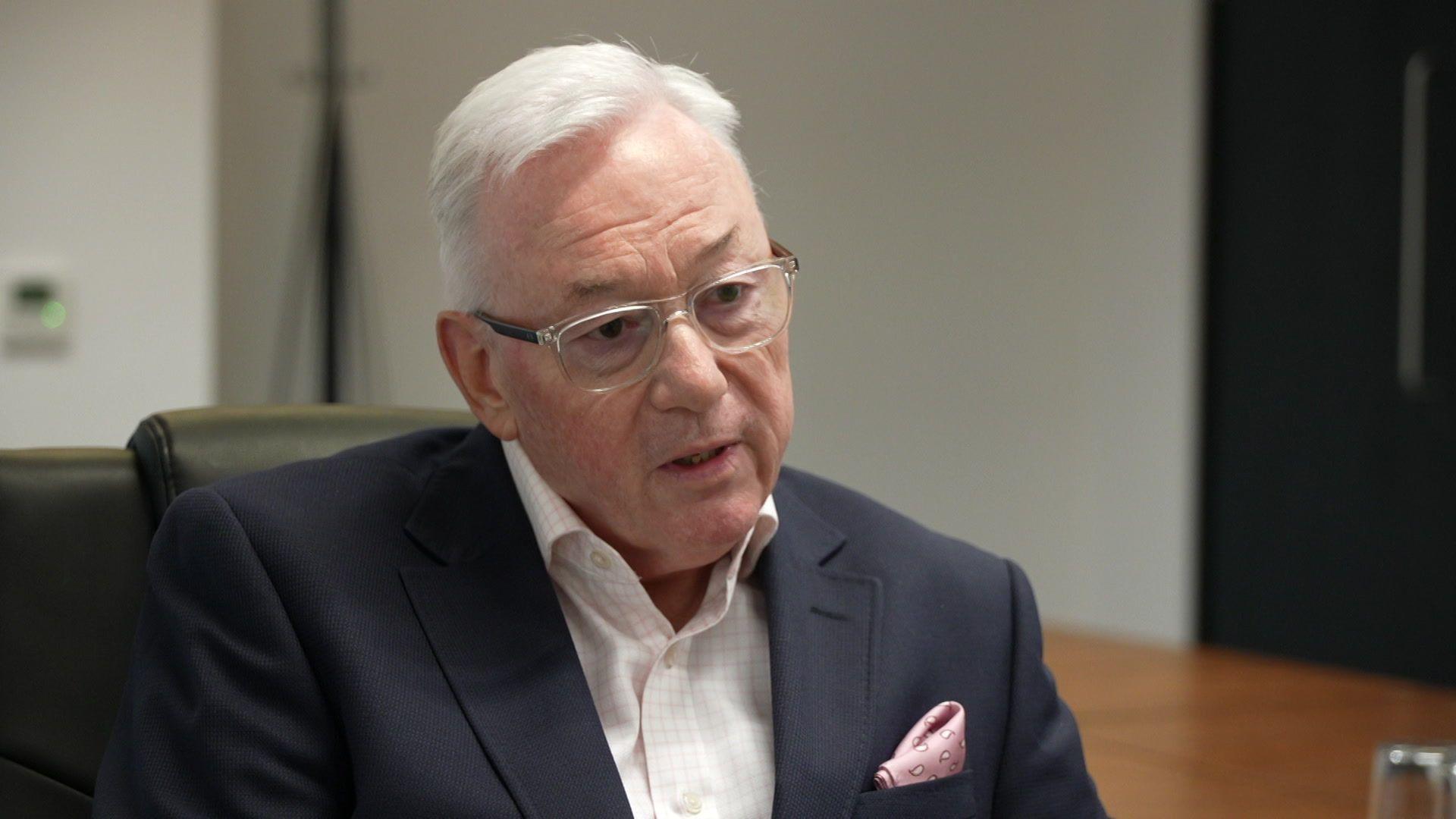'I'm using technology to fight against drive-off fuel thefts'

Shell garage owner Goran Raven says drive-offs are increasing
- Published
London fuel stations are seeing an increasing number of motorists filling up and driving off without paying, figures have shown.
One business owner in Romford, east London, says he is using technology to fight back.
The fourth generation Shell garage owner Goran Raven says the problem was eating into his profits, costing him thousands of pounds.
"It's had a real substantial impact on the business. In the last four years we've lost £30,000 due to drive-offs," he says.
"People see the Shell sign but we're actually a fourth generation firm that have been selling Shell fuel since 1929.
"Any losses from this station fall to me, I make those losses not Shell."

Mr Raven says his ANPR system has slashed drive-offs by 80%
Research from the British Oil Security Syndicate shows that in 2020 drive-offs made up 7.6% of crime per site.
This figure has increased to 28.4% in 2024 - with the most incidents being reported in the capital
Data from Met Police Freedom of Information requests, obtained by industry magazine Forecourt Trader, show that more than 14,000 making off without payment offences have been reported, external in the capital since 2020.
About 2,000 of those took place at filling stations in Ealing, Enfield, Hayes, Thamesmead and Camden.
And that is just crime that is reported. The real figures are thought to be likely higher.
‘Drive-offs are killing our family petrol station’
- Published25 October 2024
Forecourt fuel thefts rise as petrol prices soar
- Published11 June 2022
Petrol drive-offs may not be a crime, police say
- Published7 November 2024
Owners such as Mr Raven say they are frustrated by a lack of action by the police and have turned to technology instead by using automatic number plate recognition (ANPR) cameras.
"We've got a CCTV system that's got an ANPR capability on it," says Mr Raven.
"So it reads number plates on the cars. On top of that, it uses AI in the background. The cameras look at the car and say, yes, that's a red Fiesta and it's filling up with unleaded.
"Once it has that information it then contacts a DVLA database and matches the information up. If the information is correct it just rolls through, nothing happens.
"If the DVLA come back and say no that should be a blue Escort it will then flag it and we'll get an alert come up on the screen at which point we'll stop the pumps."

Gordon Balmer, from the Petrol Retailers Association, says drive-offs cost the industry about £100m a year
Technology like this has decreased drive-offs by 80% on Mr Raven's forecourt, he says, but not every small business can afford it.
Gordon Balmer, from the Petrol Retailers Association, says London is a hotspot for drive-offs.
He says: "There are some hotspots. London is a particular problem, and obviously the north of England as well in the West Midlands. However, we reckon it's about £100m that it costs the industry per annum.
"I think it has risen. Unfortunately, there is an element of cost of living, but a lot of it is opportunists. And it's risen alongside other things like, obviously, shoplifting in stores. So it's a real problem."
Mr Balmer says, historically, police forces have said they will not attend any theft below £100 but the new government has tried to remove that threshold.
"They are encouraging the police to intervene more and we've that seen more police are now attending shop lifting incidents as well as fuel theft," he says.
A Met Police spokesperson said: "The Met Police continuously targets prolific offenders through intelligence-led patrols and operations to tackle the crimes that matter most to Londoners.
"Just this summer officers have made more than 1,300 arrests during a crackdown on crime and anti-social behaviour in 20 hotspots across London."
But until a long-term solution is put in place, businesses like Mr Raven's say they will be forced to pass the cost of fuel theft on to customers.
Listen to the best of BBC Radio London on Sounds and follow BBC London on Facebook, external, X, external and Instagram, external. Send your story ideas to hello.bbclondon@bbc.co.uk, external